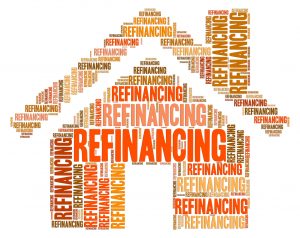 How Does Refinancing Work?
How Does Refinancing Work?
What happens when you refinance your mortgage? When you refinance a mortgage, you pay off the existing mortgage and replace it with a new one. Usually with better terms and mortgage rates; especially when compared to other types of unsecured credit.
If you’ve paid down a significant portion of your existing mortgage, refinancing can be used to not just pay off the original mortgage, it can also be used to make other purchases or pay off other debts as well.
Mortgage refinancing can be used as a form of debt consolidation. It can also be used for home renovations, travel, investing, buying additional property, or helping pay for tuition. Anything you want.
If you have a mortgage and are thinking of refinancing, you do not have to use your current lender. There are a lot of private lenders out there that can provide better terms and rates than Canada’s big banks.
Benefits of Refinancing Your Mortgage in Cambridge
There are a lot of good reasons why you should consider refinancing your home or property in Cambridge.
Lower Interest Rates and Payments
If interest rates on a new loan are lower than the original mortgage, you can save a lot of money over the life of the mortgage. It will also mean lower monthly payments. Refinancing a mortgage with a lower interest rate in Cambridge, even just half a percentage point, can add up. A monthly savings of $150 or more can have a big impact on a family’s budget.
Access Equity in Your Home
Refinancing a mortgage to access the equity built up in a property is one of the most popular reasons to refinance. Whenever you make a mortgage payment you build up equity. The more you pay off the more equity you have. If the value of the property has also gone up, chances are you’ve built up more equity in your house than you think.
When you refinance a mortgage, you can take out the equity in your home and add it to the current loan balance. Again, you can use that extra money to pay down higher interest debt, or use it to make purchases or investments. It’s your money, you can use it any way you like.
Shorten or Lengthen the Term of Your Loan
Have your finances changed since you first got your mortgage? If so, you might want to lengthen or shorten the amortization period, or length of time it takes to pay off the mortgage.
If your financial situation has improved, it might make sense to refinance a mortgage with a shorter amortization period. Paying more each month will lower the amortization period by five or more years, saving you tens of thousands of dollars in interest payments.
If funds are a little tight right now, refinancing a mortgage with a longer amortization period might be a good idea. Refinancing will free up some equity you’ve built up in your property. It will take longer to pay off the mortgage, but it could mean freeing up an extra $200, $300, or more every month.
Refinance to a Fixed-Rate or Adjustable-Rate Mortgage
When you refinance a mortgage, you can also switch to a fixed-rate or adjustable-rate mortgage. If you have an adjustable-rate mortgage and think rates are going to go higher, it might make sense to lock into a fixed-rate loan. Securing a low, fixed-rate loan will protect you from rising interest rates. A fixed-mortgage rate also makes it easier to plan your monthly budget.
If, however, you already have a fixed-mortgage and think rates are going to stay low or even go lower, you might want to look at switching to an adjustable rate mortgage.
Questions to Ask When Refinancing a Mortgage in Cambridge
Interest rates and amortization periods are important, but there is a lot more to consider when it comes to refinancing a mortgage if you live in Cambridge.
How Often Can I Refinance My Mortgage?
You can refinance a mortgage as often as you like. That said, different lenders have different guidelines but even that is often negotiable. There are costs associated with refinancing a mortgage, including switching costs and penalties for paying off a mortgage early. It’s quite possible that these penalties could eat up more than you were hoping to save. Ultimately, you may not need to refinance your mortgage every year but it’s still a good idea to, at the very least, review your mortgage annually.
Which Is Better: Refinancing or a Home Equity Loan
With terms like “refinancing,” “equity,” and “loan” being tossed around, it’s easy to think they are the same. But refinancing a mortgage and a home equity loan are very different.
Refinancing is a loan secured against the house. The existing mortgage is paid off and replaced with the refinanced one. The mortgage is paid in installments based on the terms and conditions you establish with the lender.
A home equity loan is often called a “second mortgage.” When you take out a second mortgage you borrow against the appraised value of the property, minus the outstanding balance of the primary, or first mortgage. A second mortgage does not replace the primary mortgage, it is in addition to it. It is a lump sum of money that you need to start paying back immediately. As a result, you end up having to pay two monthly mortgage payments.
A home equity line of credit (HELOC) meanwhile, is a revolving line of credit that lets you borrow against the equity you’ve built up in your home. You can use as much or as little as you like, and you only need to pay interest on the amount you use.
So, is it better to refinance a mortgage, take out a home equity loan, or consider a HELOC? It all depends on what your goals are. The mortgage refinancing experts at Canadalend.com can help you determine the best approach.
Canadalend.com, the Mortgage Refinancing Experts
If you’re thinking of refinancing your mortgage or its time to renew your mortgage, talk to the mortgage refinance experts at Canadalend.com. We’ll look at your current mortgage, your long term financial and lifestyle goals, and determine if refinancing your mortgage is the right path for you.
How can we get you better terms and rates with your mortgage refinancing than Canada’s big banks? Because the licensed mortgage professionals at Canadalend.com are independent, they have access to hundreds of different private lenders. Many even specialize is mortgage refinancing.
To find out what your mortgage financing options are, contact Canadalend.com today. Or apply online and a Canadalend.com lending specialist will help you set up an appointment for a free personal consultation at your earliest convenience.
 Canada’s housing market is vital to the national economy. To secure its health, all levels of Government must monitor the market and proactively step in when the warning signs become clear. In major cities, strong housing usually means strong employment rates and other signs of prosperity.
Canada’s housing market is vital to the national economy. To secure its health, all levels of Government must monitor the market and proactively step in when the warning signs become clear. In major cities, strong housing usually means strong employment rates and other signs of prosperity.
 How Does Refinancing Work?
How Does Refinancing Work?
 Canadians are sitting on record debt. According to Statistics Canada, we owe almost $1.70 in debt on every $1.00 of disposable income. That’s a lot of outstanding debt. Fortunately, the Canadian housing market is strong. This means you might have built up a lot more equity into your home than you think.
Canadians are sitting on record debt. According to Statistics Canada, we owe almost $1.70 in debt on every $1.00 of disposable income. That’s a lot of outstanding debt. Fortunately, the Canadian housing market is strong. This means you might have built up a lot more equity into your home than you think.